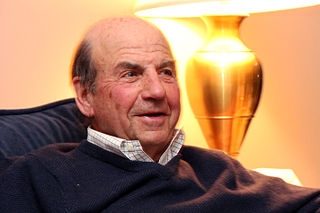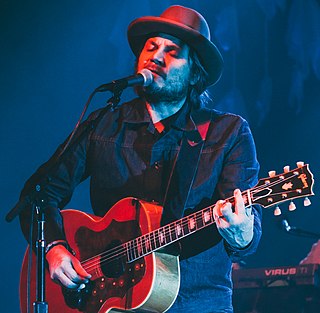A Quote by Jacqueline Woodson
I think that happens for a lot of people, they have this idea that there's only one type of way to write poetry and that you have to have this information. You have to know about meter, you have to know about form, you have to know about iambic pentameter, and all of that.
Related Quotes
In your language you have a form of poetry called the sonnet…There are fourteen lines, I believe, all in iambic pentameter. That’s a very strict rhythm or meter…And each line has to end with a rigid pattern. And if the poet does not do it exactly this way, it is not a sonnet…But within this strict form the poet has complete freedom to say whatever he wants…You’re given the form, but you have to write the sonnet yourself. What you say is completely up to you.
I don't know anything about chemistry, but I know that there's a whole world of chemistry, of professional chemists. They have their prizes, they have their publications, they have their work. Just because I don't know about it, doesn't mean that it doesn't exist. A lot of people say, "Isn't poetry in trouble today?" Or: "Nobody really reads poetry anymore." And I say, "You're crazy." There's a huge world of poetry out there. You may not know about it, but it's there.
To be honest, I’m more concerned with living my life than writing about my life. I feel like that’s really the main thing I know now that I didn’t know when I was younger — and that is that you have to have a life to write about one. If you’re more worried about having experiences so you can write about them, I think you’re kinda being ridiculous, and I think a lot of young people look at it like that.
Another problem about writing about politics in the "age of globalization" is that so much of the violence in the form of war and also in the forms of institutional violence - sweatshops, child labor, victimization of people economically - happens elsewhere and out of sight. And when we do know about it and need to witness it, it's always mediated by images of one kind or another, so you're kind of stuck trying to write about what it's like trying to be you living your life thinking about and experiencing this stuff in that way.






































